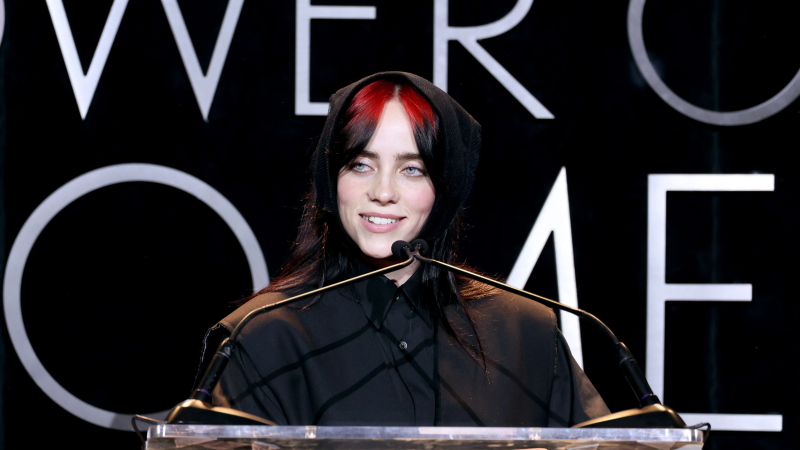Emma Corrin opens up about 'vitriol' over their gender identity: 'Why am I controversial?'
Emma Corrin has stopped reading online comments due to the hate they receive on social media.
Three years after they announced their preferred use of they and them pronouns, the actor revealed, "The vitriol is worse than I anticipated" in an interview for the June/July issue of Harper's Bazaar, which published online Wednesday.
"Even though we like to think we’re in a progressive society, a lot of what we’re seeing is increasingly a step back," they added.
Corrin, a Cambridge University graduate who broke out in 2020 for portraying Princess Diana in Season 4 of Netflix's "The Crown" and won a Golden Globe for their transformative performance, mused about why people might react the way they do.
"People follow me because they’ve watched something I’m in. They think I’m one kind of person, and then they’ll see who I actually am and how I present," Corrin said. "I will never understand why. Who are you hurting by being yourself? Why am I controversial?"
Need a break? Play the USA TODAY Daily Crossword Puzzle.
They added, "I think it’s fear. Absolute fear."
Post-"The Crown," Corrin went on to star alongside Harry Styles in "My Policeman" and played lead roles in the Hulu mini-series "A Murder at the End of the World" and Netflix's "Lady Chatterley's Lover." Next, they will play "X-Men" villain Cassandra Nova in Marvel's "Deadpool & Wolverine," out this summer.
"It feels impossible to know where to start to enact the change that needs to be done. But by taking up space, by being visible, that’s something in itself," Corrin said of inclusion in the film industry. "I’m a tiny cog at the moment."
In April 2021, Corrin took to Instagram to publicly come out as queer. Several months later, they shared their experience of using a chest binder soon after changing their pronouns to "shey/they" in their Instagram bio.
Read more:How youth are finding queer heroes on TV

Emma Corrin called exploring their gender identity 'an ongoing journey'
Later that year, Corrin opened up about their gender identity in an interview with ITV's Granada Reports.
"My journey's been a long one and has still got a (long) way to go," Corrin said. "I think that, you know, we're so used to defining ourselves — and that's the way, sadly, society works — is within these binaries and it's taken me a long time to realize that I exist somewhere in between, and I'm still not sure where that is yet."
"It's going to be an ongoing journey but yeah, I hope that sharing (my truth) helps people," they said.
Corrin added, "When I started posting about it, obviously, it felt very sort of scary and revealing and I wasn't sure whether it was the right thing to do.
"But the feedback I got from other people in the queer community has been wonderful. You know, it's like, great and it's something to be celebrated."
The portion of U.S. adults identifying as LGBTQ+ has climbed in recent years as millennials and members of Generation Z age into adulthood.
More than one in five Gen Z adults (ages 18 to 26) identifies as LGBTQ+, as do nearly 1 in 10 millennials (ages 27 to 42). The percentage falls to less than 5% of Generation X (ages 43-58), 2% of Baby Boomers (ages 59-77) and 1% of the Silent Generation (78 and older).
According to GLAAD's 2023 Studio Responsibility Index, a study of 350 films released by 10 distributors in 2022 showed 292 LGBTQ characters on screen. Of them, 10 were non-binary.
Contributing: Cydney Henderson and Marc Ramirez
Disclaimer: The copyright of this article belongs to the original author. Reposting this article is solely for the purpose of information dissemination and does not constitute any investment advice. If there is any infringement, please contact us immediately. We will make corrections or deletions as necessary. Thank you.







